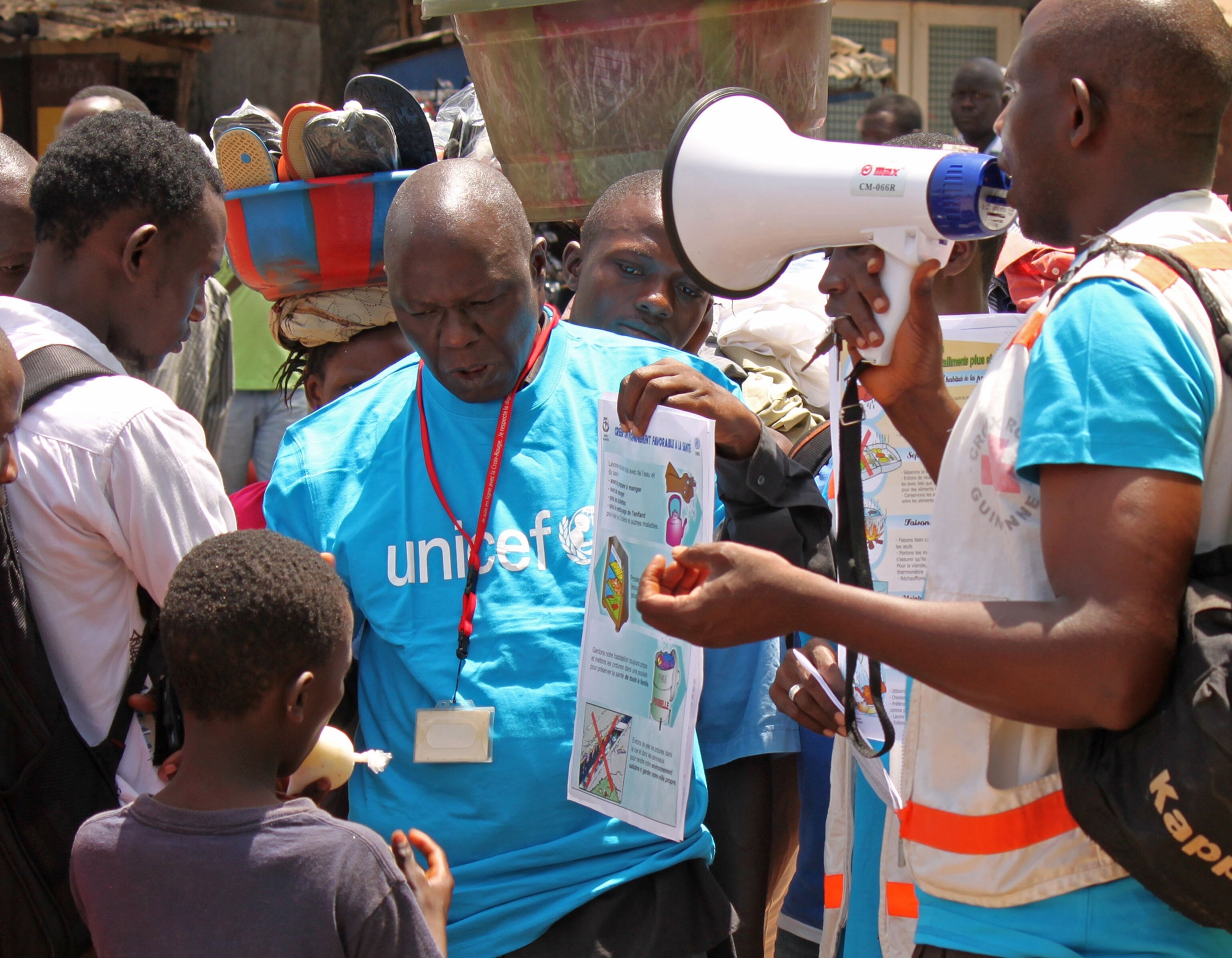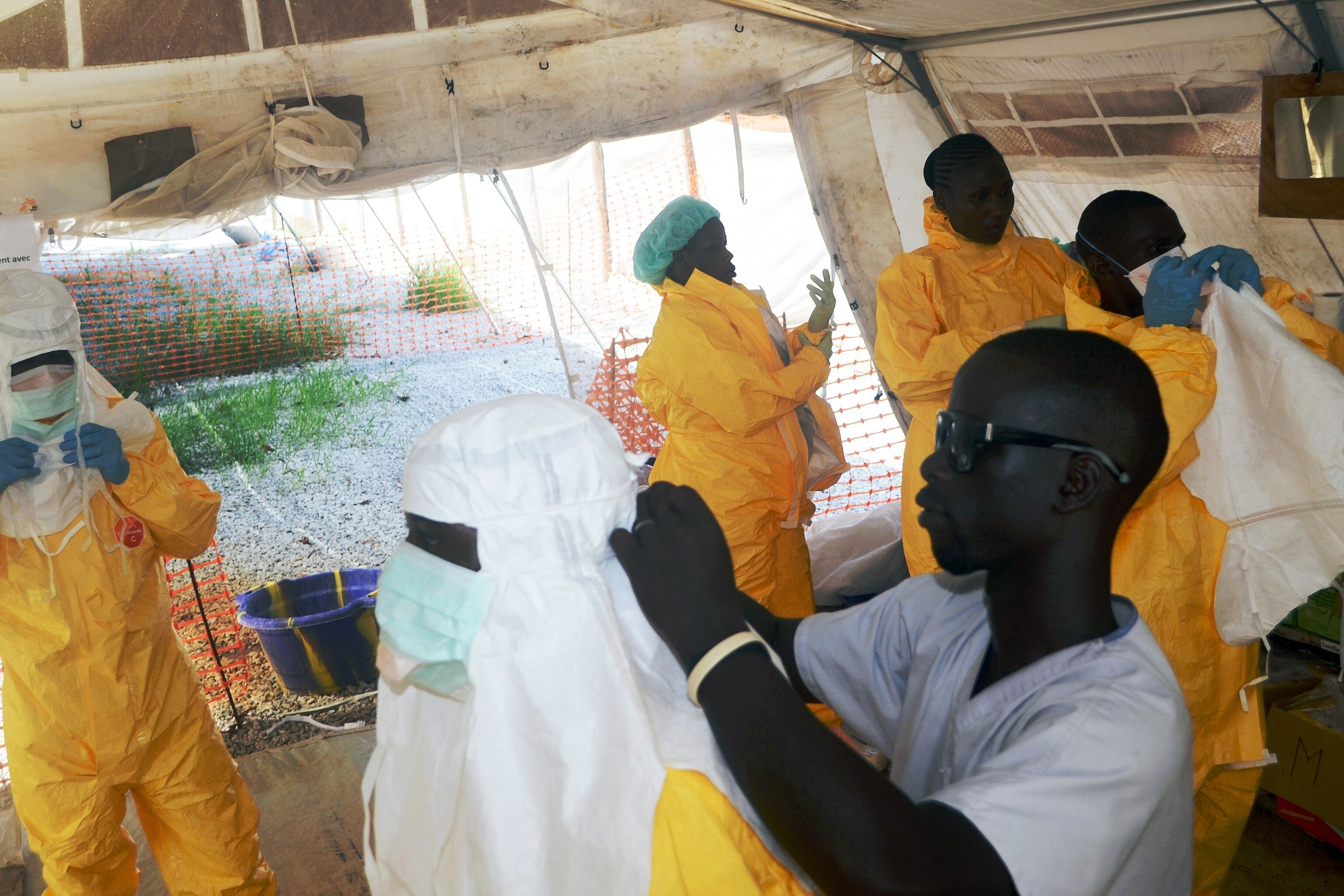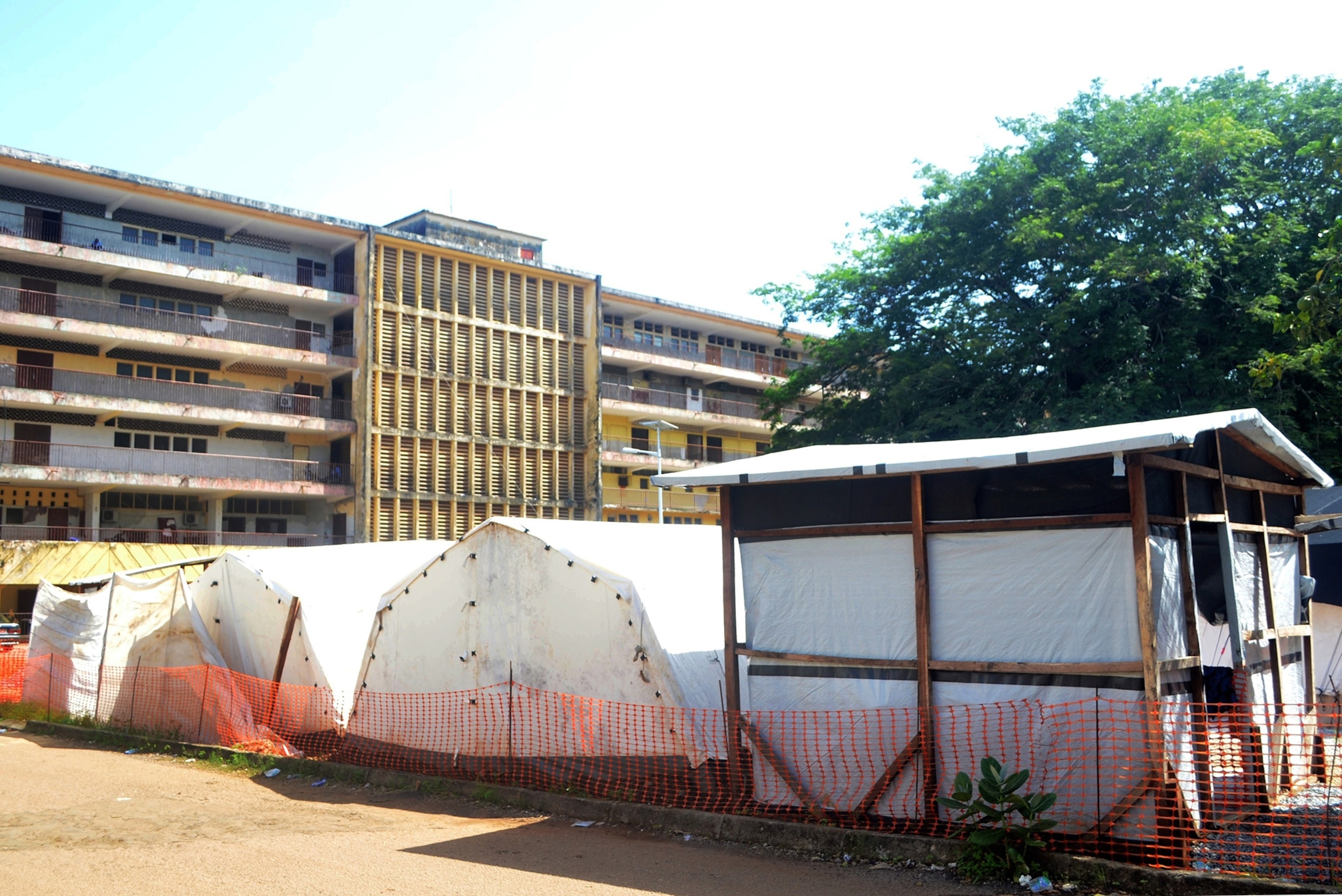
Ebola’s Deadly Spread in Africa Driven by Public Health Failures, Cultural Beliefs
A late response, the disease's spread to urban areas, and superstition have allowed the virus get out of hand.
As the largest Ebola outbreak in history continues unabated, health authorities from 11 West African countries and international agencies began a two-day crisis meeting today in Accra, Ghana, on how to combat the crisis. The World Health Organization (WHO) says "drastic action" is needed to stem the outbreak, which since March has grown to 759 confirmed cases in Guinea, Sierra Leone, and Liberia, including 467 deaths.
Given that surveillance and response measures have held this terrifying disease in check for the past decade, why has the situation gotten so far out of hand this time?
As with earlier outbreaks elsewhere in Africa, containment and treatment measures are often hampered by tradition, superstition, and poor public health infrastructure. But this epidemic is especially pernicious for several reasons.
In the early stages of the epidemic, when it could have been more easily contained, few health professionals in the region even knew it was taking place. Though outbreaks are common in central Africa, the disease had almost never been seen before in western Africa. And many of the first patients did not have symptoms consistent with a hemorrhagic fever, which initially obscured its identification. The public health response was therefore slow, and officials who made statements were often trying to calm people's fears, giving inaccurate and sometimes contradictory information.
Unusual in Ebola outbreaks, the disease is spreading to urban areas, making it even more difficult to control. Two capital cities, Conakry and Monrovia, are already affected, and a third, Freetown, is at risk. (See "Q&A: What's Behind Worst-Ever Ebola Outbreak in West Africa?")

The First Cases
The first official notice of clusters of an unknown, highly fatal disease apparently arrived at Guinea's Ministry of Health on March 10. But experts believe the first Ebola cases began appearing at hospitals in Guéckédou, a city in the forested highlands of southern Guinea, at least as far back as December 2013 and possibly even earlier.
The ministry sent a team to Guéckédou to investigate on March 14. Not until a week later did they notify WHO of "a rapidly evolving outbreak of Ebola virus in forested areas" in southeastern Guinea. By then there were 49 cases, including 29 deaths. A week after WHO's March 22 public alert, the numbers had jumped to 112 confirmed and suspected cases of Ebola virus and 70 deaths.
Patients were coming in without dramatic visible bleeding, instead presenting less unusual symptoms, including fever, vomiting, and severe diarrhea. (That's why responders in this outbreak are referring to "Ebola virus disease" rather than "Ebola hemorrhagic fever.") Even without the hemorrhaging, though, the case fatality rate is high, between 71 and 86 percent, and the virus spreads just as easily through contact with any fluid from the victim.

Now cases have been identified in more than 60 locations in Guinea, Sierra Leone, and Liberia, threatening large cities as well as the countryside. Even for seasoned Ebola responders, this situation of multiple outbreaks across a vast area and into large cities is unique. Médecins Sans Frontières or Doctors Without Borders (MSF) has said that due to the scope and number of victims in this outbreak, it has reached its capacity to help.
In earlier Ebola outbreaks, such as in Sudan in 2004 and Uganda in 2012, the first response was to move suspected Ebola patients to an isolation facility. There doctors and nurses wearing full-body protective gear provided treatment. At the same time, other responders went into the community to begin the detective work of tracing the patient's contacts who might have been exposed to the virus. Eventually, as sources of infection were identified and removed from a vulnerable population, the outbreak would burn out. This approach has worked time and again in some of the most remote parts of Africa. But to be effective, responders need an early start, which they did not get.
The challenge now is twofold: to continue treating patients and to bring the outbreak under control. Treatment is dangerous for medical staff, and when they're sealed head to toe in protective gear with temperatures soaring above 90 degrees, it's also physically grueling. The work is also emotionally draining, as most of the young and old alike die despite heroic efforts. All this means that providing treatment to Ebola patients requires enormous physical and emotional stamina as well as courage.
Deep Distrust
Controlling the outbreak is no less daunting. "Educating populations is the best way to prevent transmission in the community," says David L. Heymann, a professor of infectious disease epidemiology at the London School of Hygiene & Tropical Medicine, who has responded to several Ebola outbreaks in the past, including the first outbreak in Zaire (now the Democratic Republic of the Congo) in 1976.
But such efforts now face a slew of difficulties. The work of informing at-risk populations is being thwarted by superstition, fear, and suspicion.
The first step in containment is to get those affected to health centers where they can be isolated and treated. But as community members are taken to isolation wards—most never to be seen again—rumors often circulate that the wards are not for treatment but for something more sinister.
So Ebola patients often hide from the authorities trying to gather names of close contacts. Those who are put in isolation may escape and be hidden by families. Sierra Leone has now made it a crime to hide victims, but punitive measures rarely make the job easier for public health responders.

In places where the concept of infectious diseases is unknown, Ebola victims and their families are often stigmatized. Some in the community believe that the illness is the result of a curse and that those associating with the victim or the victim's family will fall under the curse as well.
Community life is disrupted when health workers suddenly appear, dressed in what appear to be space suits. And these communities often already have a deep-seated suspicion of outsiders. In this outbreak, health workers have been met with hostility and violence in several locations, and an MSF official said one team has had to withdraw from an outbreak site because of the intense local reaction.
Enlisting the Community
The people at greatest risk in Ebola outbreak areas have to accept that certain traditional activities, such as eating animals found dead in the forest, or bush meat, can be dangerous and should be abandoned. And they have to be persuaded to give up some of their longstanding burial practices, such as washing the body, since the Ebola virus can live on the skin of a victim even after death.
These public health messages are now being broadcast on television and radio in the region, but it's not yet clear whether they're changing behaviors. Trust in pronouncements by government or health authorities still appears to be low. In part, this may be due to comments made by public officials, such as the declaration in April by the president of Guinea that the outbreak was under control. Public trust suffered another setback in early May, when sites were reporting that the number of cases had dropped, in some places to zero. It quickly became clear that the outbreak was not over.

Ebola responders report that local communities are still very frightened and view health facilities with suspicion. Though organizations are working to raise awareness, MSF says civil, political, and religious authorities are "failing to acknowledge the scale of the epidemic, with few prominent figures spreading messages promoting the fight against the disease."
WHO's meeting this week should raise awareness of the disease in the region, but that awareness has to be followed by widespread, accurate health campaigns, which will require a strong commitment from national leaders. Awareness campaigns can be effective if the community trusts the educator. This means framing the public health message in a way that addresses the cultural context of the audience. Public health educators must be active listeners—one reason anthropologists have long been essential members of outbreak-response teams.
The goal is to enlist the community in fighting the outbreak. It's possible to gain a community's trust and cooperation even in the midst of the frenzy of an outbreak. In some remote corners of central Africa, communities understand Ebola so well that they've learned to serve as their own surveillance system. But this is a long-term goal, and it will not be accomplished easily or quickly.
Dick Thompson was a communications official at WHO from 2001 to 2009. He specialized in outbreak communications and named the disease SARS. Prior to joining WHO, he was a science and medical journalist and bureau chief for Time magazine for 23 years. He now lives in Portland, Oregon.